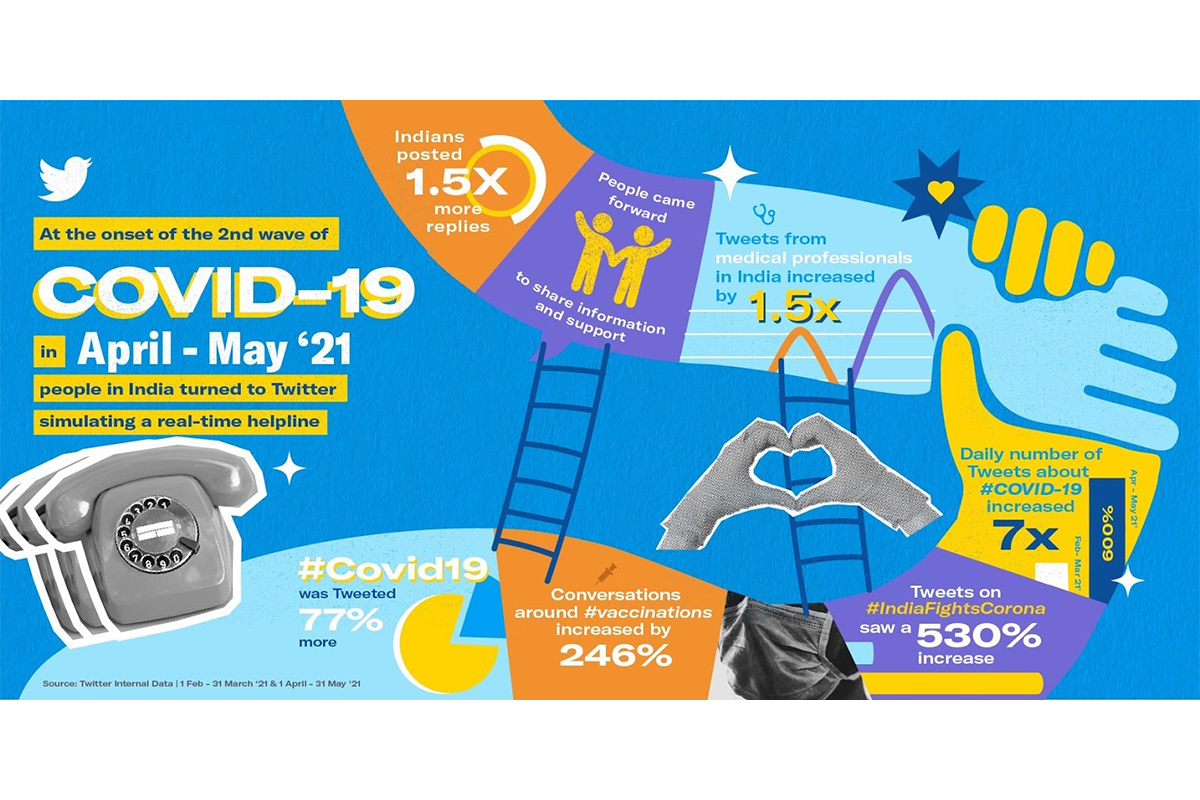Elon Musk leads USD 97.4 billion bid to buy OpenAI, Sam Altman offers to buy “Twitter” instead
A group of investors led by CEO of Tesla and SpaceX Elon Musk made a USD 97.4 billion bid to acquire the assets of OpenAI
As per Twitter’s latest data for April 01 – May 31, when the country was hit by the second wave of the Covid-19, tweets related to COVID-19 from India grew extensively by over 600 per cent.

(Photo: SNS)
The Covid-19 pandemic has hit millions of lives across the country, and its second wave affected even more. As a result, many came out both to seek and offer help to the ones in need. In all this process, social media platforms emerged as the common ground where people shared their stories, raised queries and sought financial or medical help. Among all platforms, Twitter witnessed a sharp rise in Covid-19 related conversations.
As per Twitter’s latest data for April 01 – May 31, when the country was hit by the second wave of the Covid-19, tweets related to COVID-19 from India grew extensively by over 600 per cent.
Advertisement
After analyzing the data, the company divided it into four broad categories, i.e., medical help, sharing information, raising funds, and mental health. Statistics of each category are as follow.
Advertisement
1. Medical help: Tweets around seeking or providing medical help increased by 1958 per cent (20x). #Covid19 was Tweeted 77% more during the second wave, #Blood was Tweeted 72% more as compared to the Feb-March period, #Plasma saw an 834% increase and #SOS was Tweeted 152% more during this time. The exchange of Tweets between people seeking help and those volunteering to connect them with resources boosted the volume of replies – revealing a 1.5x increase.
Tweets around #Vaccine and #Vaccination went up by 246 per cent. Twitter introduced a home Timeline prompt that points people to vaccine-related updates and information from authoritative sources to support this conversation.
2. Sharing information: Given the fact the many expert organizations, official government accounts, health professionals, and epidemiologists on the service, people relied on the platform to find accurate information on the latest developments, best COVID-19 practices, vaccination drives, and other relevant information. Tweets with hashtags – #CoronavirusUpdates, #CoronaIndiaUpdate, #Covid19IndiaResources, among others increased the conversation by 916 per cent (10x).
3. Raising funds: As people came forward to contribute to relief efforts, fundraising conversations on the platform jumped by 731 per cent (8x). Interestingly, Australian cricketer Pat Cummins’ (@patcummins30) Tweet announcing his monetary support to India was the most Liked and Retweeted Tweet during this period.
4. Mental health: Mental well-being remained top of mind for people and recorded a 153 per cent (2.5x) increase during the surge. People Tweeted with hashtags such as #DoctorsMentalhealth, #CovidCounselling, #CovidDepression, #CovidInsomnia, among many others. Prayer or hope emerged as the dominant sentiment, with the folded hands 🙏 being the most Tweeted emoji.
Other than these, the microblogging website also witnessed a sharp surge of 530 per cent in tweets with #IndiaFightsCorona, among local and state-related conversations. Among all, #DelhiFightsCorona and #MaharashtraFightsCorona saw a significant increase in Tweets – with conversations going up by 1872 per cent and 2377 per cent, respectively.
Advertisement